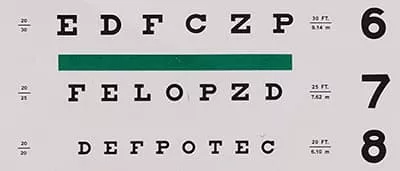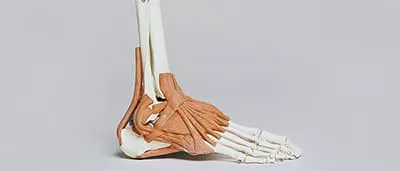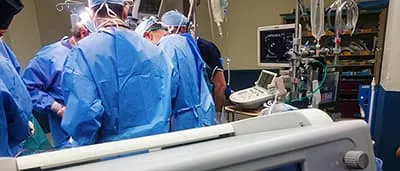Pre-health professions
College of Health
Allied health professionals provide therapeutic treatment, diagnostic procedures and work in conjunction with physicians.
Whether you're interested in becoming a doctor, nurse, physical therapist or another type of health care professional, the College of Health can help you get started on your journey.
Allied Health Professionals generally fall into two categories: therapeutic care and technicians.
Doctors of Medicine (in any field) are considered independent practitioners and diagnose, while allied health professionals do not diagnose but provide therapeutic treatment, diagnostic procedures and work in conjunction with physicians.
The Association of Schools of Allied Health Professions defines allied health as the segment of the health care field “that delivers services involving the identification, evaluation and prevention of diseases and disorders; dietary and nutrition services; and rehabilitation and health systems management".
What is the best major?
For most health professions, the major isn't nearly as important as getting the pre-requisite courses and experience in the field. Schools like to have people with diverse interests and backgrounds, so we really want to emphasize that students should study what they enjoy, what inspires and excites them. Find your passion.
All College of Health majors are excellent choices for health professions for a number of reasons, but differ in required pre-requisites for professional programs.
For example, Public Health/Health Promotion Health Behavior trains students to understand population health, evidence-based programs and practice, and social determinants of health, which are all invaluable to work in medicine. All courses required to apply to medical school or other pre-professional programs can easily be included when planning your public health degree.
The Nutrition Health Sciences option has a large majority of the pre-medical competency courses built in to the degree, but not a lot of extra room for other minors, electives, etc.
We can help you choose the major and path to help you reach your long-term goals.
What health profession are you interested in?
For students in the College of Health, the most common allied health careers students are interested in are: Athletic Training, Physical Therapy, Occupational Therapy, Nursing and Physician Assistant.
Kinesiology majors can choose to add the Pre-Therapy and Allied Health option, that does offer professional tracks for PA, PT, PT, Medicine, and Nursing pre-requisites. Please refer to the OSU course catalog or Kinesiology undergraduate major page for more information.
While the two most common medical paths our students pursue are Allopathic (MD) and Osteopathic (DO), there are other types of health care professionals who have different schooling (see below), shorter education paths and therefore lower financial burden, and more often than not, greater life/work balance, so be sure to really look at the different fields.

Chiropractic FAQ
Information and FAQs for Oregon State University students interested in becoming a chiropractor

Nursing FAQ
What it takes to become a registered nurse and how to get your BSN or A-BSN.

Occupational Therapy FAQ
Information and FAQs for Oregon State University students interested in becoming an occupational therapist.

Occupational Therapy Assistant FAQ
Information and FAQs for Oregon State University students interested in becoming an occupational therapy assistant

Optometry FAQ
Information and FAQs for Oregon State University students interested in becoming an optometrists

Physical Therapy FAQ
Information and FAQs for Oregon State University students interested in becoming a physical therapist

Physical Therapist Assistant FAQ
Information and FAQs for Oregon State University students interested in becoming a physical therapist assistant

Physician Assistant FAQ
Information and FAQs for Oregon State University students interested in becoming a physician assistant

Podiatry FAQ
Information and FAQs for Oregon State University students interested in becoming a podiatrist

Pre-Med
Information for Oregon State University students interested in becoming a physician

Pre-Nursing FAQ
Information and FAQ for Oregon State University students interested in becoming a nurse.
More examples of allied health professions
The following is just a sampling from almost 100 different allied health professions and some information about the careers:
- Athletic training
- Audiology
- Cardiovascular perfusion technology
- Cytotechnology
- Dental hygiene
- Diagnostic medical sonography
- Dietetics
- Emergency medical sciences
- Health administration
- Health information management
- Nuclear medicine technology
- Occupational therapy
- Physical therapy
- Physician assistant
- Radiation therapy technology
- Rehabilitation counseling
- Respiratory therapy
- Speech-language pathology
Another great resource for information on careers, salaries, projected growth and education is the Bureau of Labor Statistics.